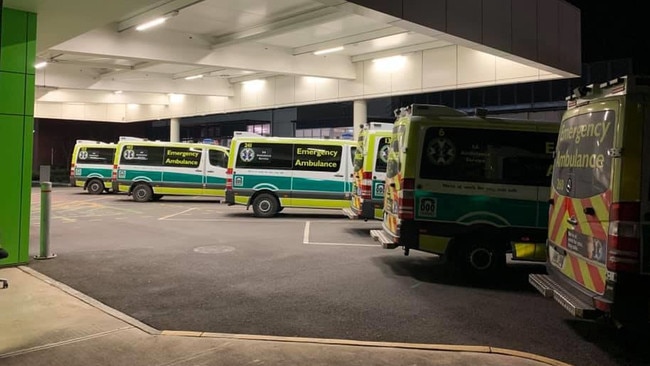Inquest into death of Craig Malcolm Files hears of two-hour ambulance delay leading to his death at Norwood property
A man was left lying on the floor of his Norwood home for two hours, gradually losing consciousness, while half of all metropolitan ambulances were ramped, an inquest has heard.
SA News
Don't miss out on the headlines from SA News. Followed categories will be added to My News.
A patient lay on the floor of his Norwood home waiting for an ambulance and gradually losing consciousness for more than two hours, a coronial inquest has heard.
Craig Malcolm Files, 54, was declared dead in the early hours of January 30, 2019, following a fall in his Norwood home and after waiting for more than two hours for an ambulance.
His partner called 000 at 12.28am, but as Mr Files was conscious and breathing at the time he was classified as a priority three patient, meaning he was in need of urgent – but not emergency – attention.
At the time of the call, 19 of the 34 ambulance crews operating in the metro area were ramped at hospitals.
Eleven of those had been kept there for more than the maximum 30 minutes allowed to transfer patients.

At 1.22am, Mr Files’ partner called back asking why the ambulance had not attended.
More than two hours after the first call had been made, an ambulance arrived at the unit but found Mr Files unconscious and in cardiac arrest.
He was declared deceased at the scene with a paramedic noting Mr Files appeared to have been in arrest for sometime before their arrival.
An inquest into the death began on Friday where it was joined to a similar inquiry into the death of Virginia Weekes, who died in April 2020.
Ms Weekes, 70, had called an ambulance at 6.50pm on April 4, reporting vomiting, abdominal pain and shortness of breath.
When an ambulance arrived at 8.05pm crews found Ms Weekes deceased.
On Friday, senior ambulance officer Richard Larsen gave evidence based on a report he authored on the situation on the night of January 29 and morning of January 30.
Mr Larsen said that on that night a higher than expected number of 000 calls had begun in the early evening.
As the number of calls dropped off, numerous crews were left ramped at metropolitan hospitals.
In total, 134 hours of time when the ambulance crews could have been active was lost as crews were waiting at metropolitan hospitals.
The number of crews that night was higher than average after an additional “scratch” crew had been put together out of extra paramedics.
The standard benchmark for priority three call outs is for a crew to respond within 30 minutes.
On the night of Mr Files’ death, only 33 per cent of responses met that time frame.
Deputy Coroner Ian White also heard that several crews had been stepped down so they could take mandatory breaks which should have been taken earlier in the shift.
Mr Larsen said data accessed by him indicated several crews had gone through their entire shift without taking a break.
The court also heard the shift had started at code green but had been upgraded to code amber at 8.30pm.
The increased code led to managers trying to find more staff to crew ambulances.
Mr Larsen said from his report there were numerous times during the evening and early morning where the situation should have been upgraded to a code red.




